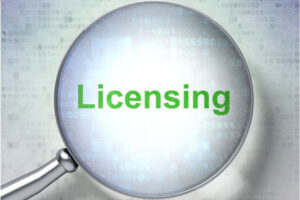Enlisting the help of an experienced Texas licensing board defense attorney from the outset of your disciplinary proceedings can result in a better outcome in your case. If you are facing a disciplinary complaint, contacting an attorney to prepare a quick and appropriate response is key. As your disciplinary case proceeds, we can explain the process, explore your potential defenses, and work to obtain the best possible outcome in your case. Together, we can find a solution to minimize the impact of disciplinary proceedings on your career.
Receiving Notice of a Licensing Board Investigation
Every licensing board or agency has slightly different procedures for processing the complaints they receive against license holders. Therefore, the point at which you receive notice of the licensing board’s investigation may differ. In most cases, if the board determines that it has jurisdiction over the complaint, and the complaint alleges violations of the laws that it enforces, then the board will open a file and formally notify the licensee of the complaint.
You will typically receive a copy of the complaint and any supporting documents the complainant submitted to your licensing board. You also are likely to receive correspondence from the board asking for a response within a specific number of days, the length of which varies according to agency. At the same time as you receive notice of the complaint and formulate your response, your licensing board will continue with a more thorough investigation into the allegations against you.
Responding to a Licensing Board Investigation
Your prompt response to a licensing board investigation is crucial. A failure to respond could result in the board finding that you committed a violation and imposing disciplinary sanctions against your license with no further proceedings. Under many agency rules, failing to acknowledge or respond to a complaint within the appropriate timeframe can lead to a “default” finding against you that is hard to overturn. Therefore, you must always respond before the deadline or ask the board for a written extension.
The content of your response to a licensing board complaint is equally important. A meticulous, well-crafted response could result in the board dismissing your complaint without initiating formal disciplinary proceedings against you, which is the best possible outcome in your situation. However, a cursory denial of the allegations with no further explanation or details is not likely to help your case or result in the dismissal of the complaint. No matter how ridiculous you think the allegations in the complaint may be, you must take it seriously and respond to it formally and in detail. You should never assume that you automatically will prevail in a licensing board investigation simply because you are a professional and the allegations against you are misguided or untrue.
Requests for Interviews or Site Visits by the Licensing Board
Sometimes, agency investigators may request to interview you concerning the complaint or visit your practice or workplace as part of their investigation. While these actions may be important to the investigation, you should consult your attorney before readily agreeing to these interactions. If you decide to allow an interview or site visit, then your attorney should be present at all times to prevent any unnecessary lines of questioning or inappropriate intrusions into your office or work site.
While the agency investigator assigned to your case may seem friendly and focused on clearing your name, that is not their function. The licensing board must protect the public and enforce the rules that govern your profession, not protect you or safeguard your reputation. Therefore, having legal counsel present during all interactions with agency investigators is key.
For instance, if you participate in an interview without legal counsel present, you may inadvertently disclose details or information that the licensing board previously did not know. You also may accidentally admit to a violation of a law or rule that could worsen your situation and add to the allegations against you. While you may strongly desire to tell your side of the story and defend your actions, an investigation is not the time to do that. Seeking legal advice before contacting an agency investigator is the best way to avoid worsening your position and ensure that you protect yourself from any further violations or admissions of guilt.
Conclusion
Navigating disciplinary proceedings before a licensing board can be daunting, but seeking the guidance of an experienced Texas licensing board defense attorney can significantly improve your chances of achieving a favorable outcome. Prompt and strategic action is crucial from the moment you receive notice of a licensing board investigation. With legal representation, you can effectively respond to complaints, navigate investigations, and protect your professional interests. Your attorney can assist you in formulating a comprehensive response, advocating on your behalf during interviews or site visits, and exploring potential defenses to mitigate the impact of disciplinary proceedings on your career. By working together, you and your attorney can find solutions to minimize the repercussions of disciplinary actions and safeguard your professional future.
Click to contact our professional license defense lawyers today
Count on Bertolino LLP to Protect Your License Throughout Your Disciplinary Proceeding
A disciplinary investigation, proceedings before your professional licensing board, and potential sanctions can be a challenging and stressful experience. Becoming the recipient of severe and restrictive sanctions in disciplinary proceedings can endanger your ability to work and support yourself. Only an experienced Texas license defense lawyer can offer you the guidance you need. Contact us today by calling the offices of Bertolino LLP at (512) 515-9518 or visiting us online.
Call or text (512) 476-5757 or complete a Case Evaluation form






